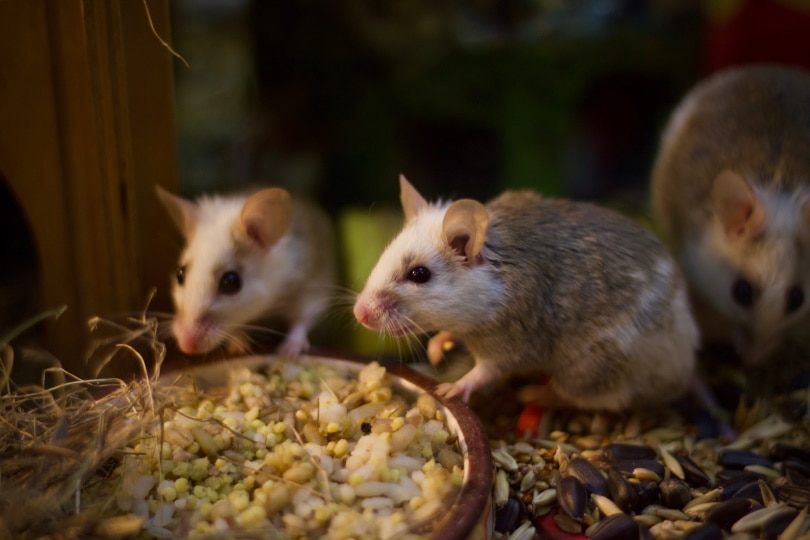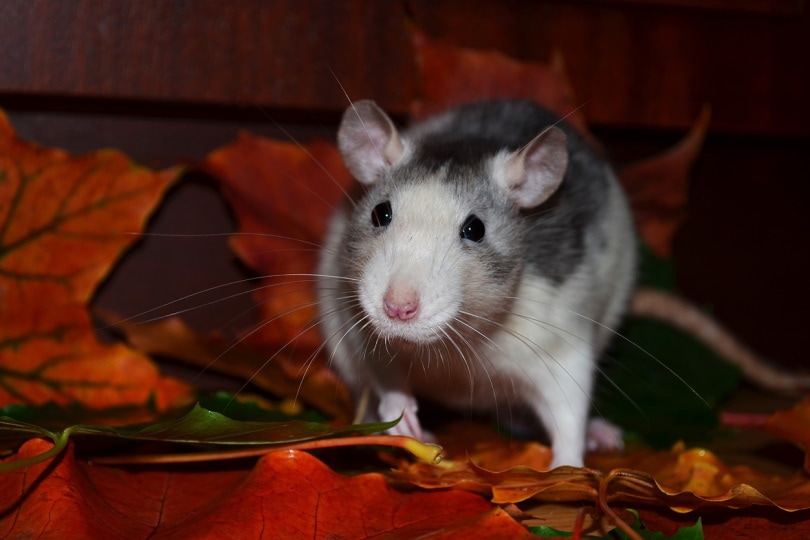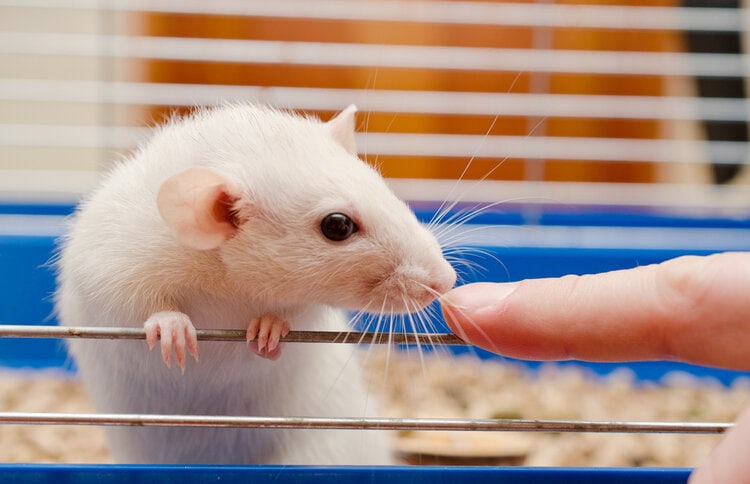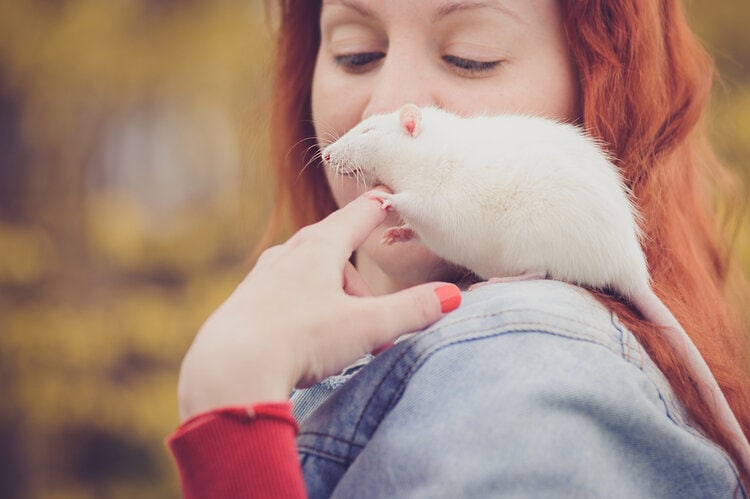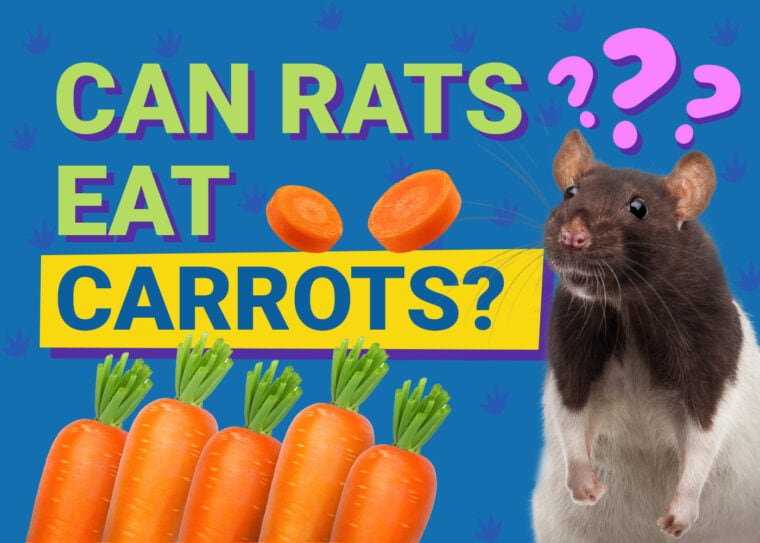
Mice can eat all sorts of different things—including carrots. As omnivores, they need a varied diet to thrive. Carrots can be a crucial part of a mouse’s diet—but only in moderation. It isn’t that carrots are bad for them or anything of that sort. They just don’t have everything your mouse needs to thrive.
They’re a good snack or supplement, but they can’t be the central part of your mouse’s diet.
Carrots can be provided either raw or cooked—both solid options. Watch canned carrots, though, as they tend to have added sodium that can be dangerous for your mouse.
We recommend skipping canned food altogether or carefully checking the ingredient list. Don’t choose options with added sodium.
A Quick Guide to Mouse Nutrition
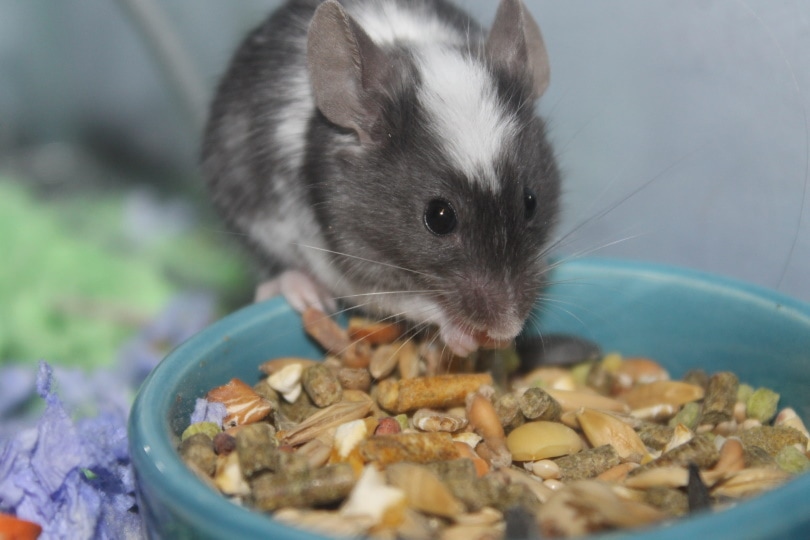
Before you can understand where carrots fit into a mouse’s diet, it is essential to understand mouse nutrition.
Commercially, most foods are designed for “rodents”, so it isn’t uncommon to find foods advertised as suitable for rats, hamsters, mice, and gerbils.
While these species have similar requirements, they are not all the same. They have slightly different needs, which are essential to keep in mind when caring for your mouse.
The central part of your mouse’s diet should be rodent pellets. They should preferably be explicitly designed for a mouse (though those for rats would likely work well too). These foods are designed to have all the nutrients your mouse needs to thrive. They were initially designed for laboratory situations, where they would be the mouse’s only food.
The hardness of the pellets also keeps your mouse’s teeth ground down, which most fruits and veggies won’t help with.
However, you should also feed your mouse a variety of fresh foods. Fruits and veggies are your best options here. While you can feed sweets on occasion, these don’t have any nutrients and can lead to obesity.
Instead, opt for fresh and healthy foods.
Carrots can play a role in this part of their diet – but they shouldn’t eat just pellets and carrots. A varied diet is essential for their long-term wellbeing.
How Much Carrot Can a Mouse Eat?
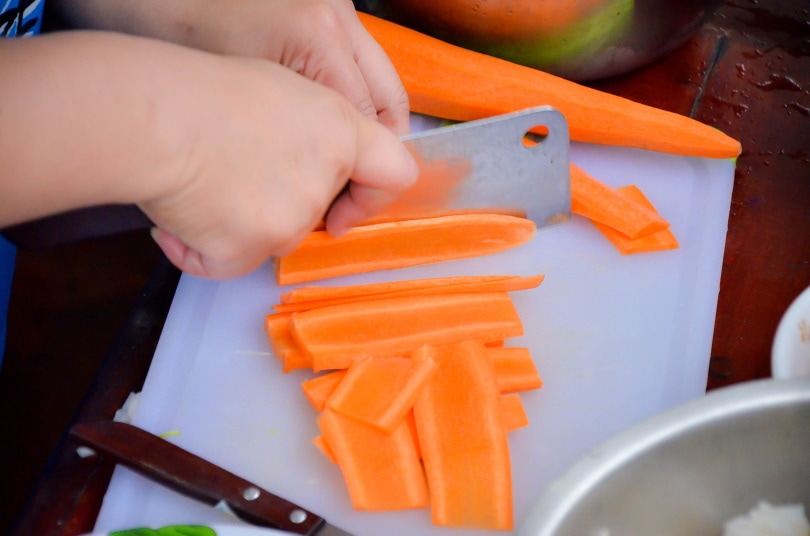
The bulk of your mouse’s diet should be fortified pellets. You can free-feed a mouse, which would involve simply refilling their bowl with the appropriate number of pellets each day.
However, this does increase the chance for obesity, as the mouse will have extra access to food that they don’t need.
Instead, we recommend measuring out an appropriate number of pellets and then measuring out an appropriate amount of fresh food. These should be offered daily at about the same time each day.
A few larger blocks or a small handful of pellets is enough for a single mouse. Most commercial foods will have directions on the back that you can use to gauge how much your mouse needs.
In addition to this, you can add a few fruit or veggie pieces. Rotate the fruits and veggies your offer. Crackers, seeds, and cereal can also be provided under some circumstances, but this should only be done rarely. These foods can be a bit fattening.
Generally, a few small pieces of carrots are more appropriate.
Carrots and other veggies should only make up about 10% of your mouse’s diet. The rest should be an appropriate pellet. While carrots are healthy, they aren’t nearly as balanced as pellets. They only contain some vitamins and minerals – not everything your mouse needs.
Therefore, they do best as a supplement. A mouse that lives off of carrots will develop some nutritional deficiencies.
The average mouse will consume about 4 grams of food each day. That means that carrots should only make up about half a gram each day.
You should remove uneaten food at the end of the day – especially carrots. You don’t want your mouse to eat rotten food.
Some mice may need more food. Nursing, pregnant, and growing mice all fall into this category. If you need to increase their overall food intake, you can increase their fruit and veggie intake proportionally.
- See Also: What Do Mice Eat in the Wild & as Pets?
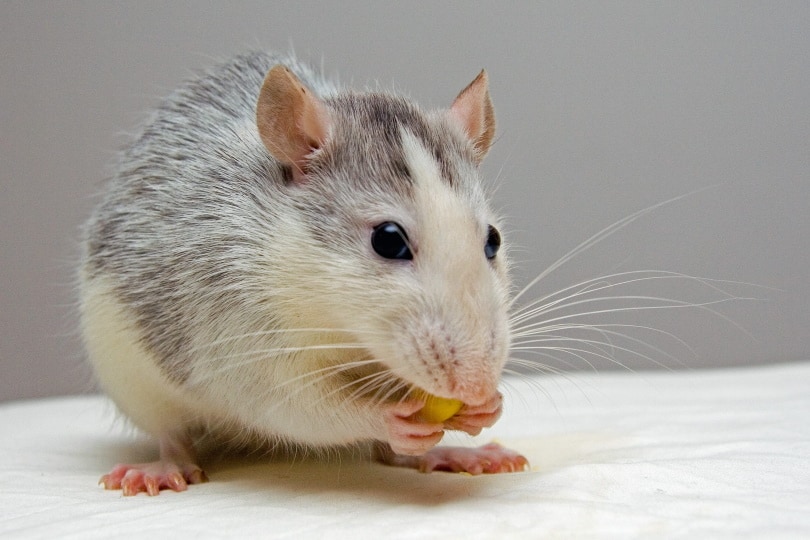
Are Carrots Good for Mice?
Carrots contain a variety of nutrients that are important for mice. For instance, they include vitamin A, biotin, vitamin K1, and antioxidants. All of these are essential for your mouse’s overall health.
Carrots are also relatively high in fiber – another essential nutrient for mice. Fiber helps regulate their digestive system.
The antioxidants can prevent oxidative damage, which has been associated with a wide variety of different diseases. Antioxidants in food can help prevent DNA damage to your mouse.
The only problem carrots may pose to mice is the higher pesticide levels. Like a lot of fresh produce today, carrots are often sprayed with pesticides. You can wash and peel them to remove much of these, as well as shop organically.
Mice are more sensitive to pesticides than people, as they have smaller body weights.

Should I Feed My Mouse Cooked or Raw Carrots?
Both cooked and raw carrots are appropriate for your mouse. However, mice typically like to chew things, so most will prefer raw carrots. Plus, it eliminates the need for you to cook them.
Carrots can provide a fun and nutritious chew toy for your mouse. They can help grind their teeth to a healthy level. If their teeth grow out too much, it can cause serious periodontal problems.
If you do decide to cook the carrots, be sure they stay as plain carrots. You don’t want to add salt or any seasonings to them. Many of these are toxic for mice. You want them completely plain.

What About Canned Carrots?
Canned carrots are not usually the best choice. They often contain extra ingredients that can be harmful to your mice, such as preservatives and sodium.
Many canned veggies have extra salt added. These salts often don’t cause a problem for people, but mice are much smaller. Therefore, you should be very careful regarding the sodium content of carrots.
Preferably, you want to find an option that has no sodium added at all. These are often described as “heart-healthy” or something similar.
Beware of other additives too. Some have extra seasonings included, which can be dangerous for your mouse.
Thoroughly read the ingredient list before purchasing any canned or otherwise processed carrots (such as frozen carrots). You want the ingredient list only to include carrots. Water is the only other ingredient that’s okay if it’s included.
Canned foods have to be canned in something. Usually, carrots are canned in water.
Mice will typically prefer raw carrots to canned, so we recommend skipping these steps altogether and avoiding canned carrots.
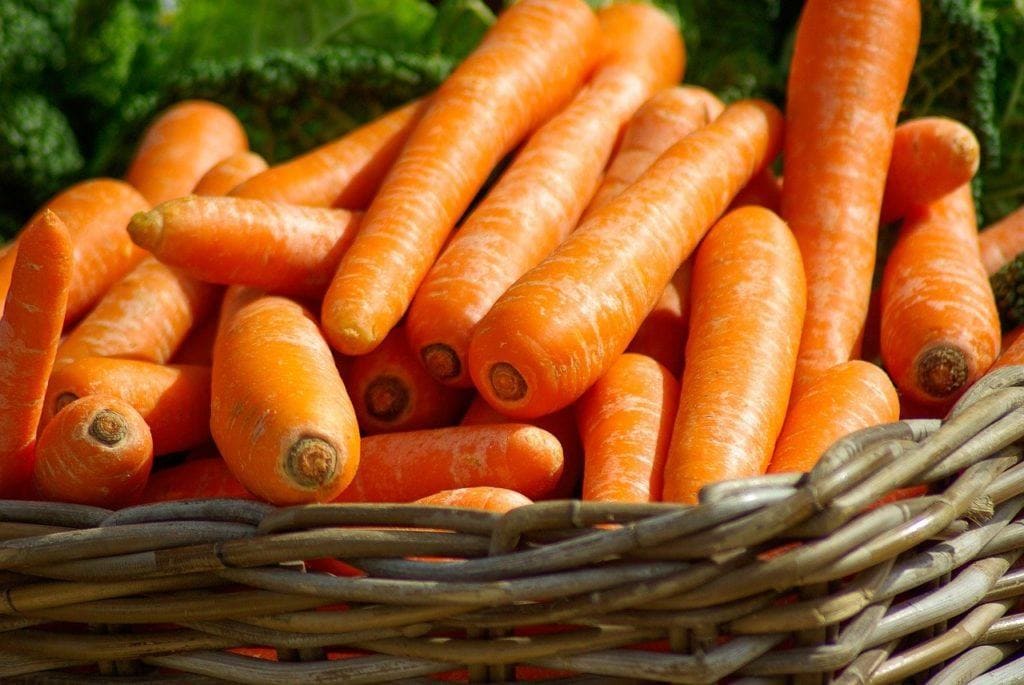
Do Mice Like Carrots?
Some adore carrots – while others don’t care much for them at all. It mostly depends on what your particular mouse likes. You won’t know until you try.
If your mouse doesn’t like carrots, there is no reason to force them. Carrots are healthy, but they aren’t a must-have by any means.
You may feed your mouse any number of other veggies instead, including tomatoes and cucumbers. Your mouse is bound to like some of these veggies – though they likely won’t like all of them.
If your mouse refuses to eat veggies at all, it isn’t the end of the world. While mice do benefit from consuming fresh foods, they can live solely off of their provided pellets. Therefore, as long as your mouse is eating their pellets, there is no reason to worry.
Provide carrots and other fresh foods, but don’t be upset if your pet doesn’t eat all of them.
Conclusion
Carrots can be an excellent option for mice. They are full of many different nutrients, including vitamin A and antioxidants. They make an excellent supplement to a mouse’s diet. But that’s all they should be – a supplement.
Carrots are not nutritionally complete at all. They are high in a few vitamins, but your mouse needs to eat other things as well.
Therefore, we recommend that carrots make up no more than 10% of your mouse’s diet. The rest should be primarily pellets, which are fortified with all the nutrients your mouse needs.
Preferably, you would vary the remaining tenth of their diet between different fruits and veggies – which can include carrots.
Featured Image Credit: Kerstin Riemer, Pixabay

